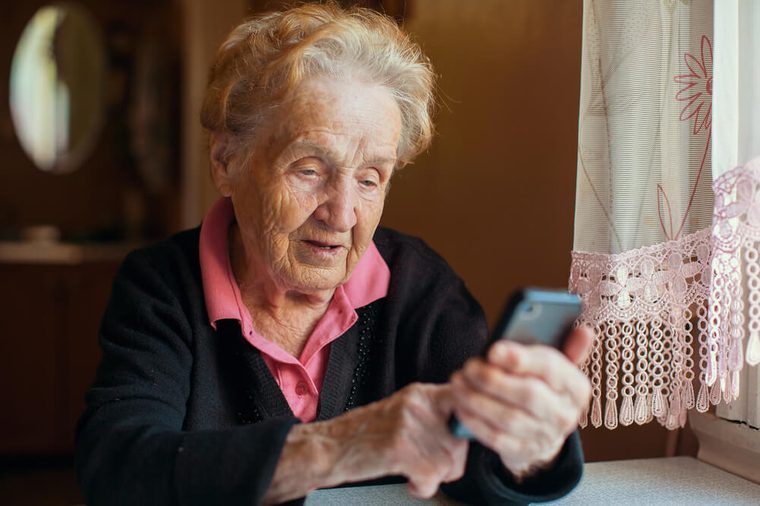
Don’t hesitate
When it comes to heart attacks, there’s a crucial statistic to keep in mind: The average person waits three hours before getting help for heart attack symptoms, and many heart attack patients die before ever reaching a hospital, according to information from the National Institutes of Health. But you can give yourself the best possible shot at survival by following the advice of medical experts who know best. Make sure you know the silent signs of a heart attack.
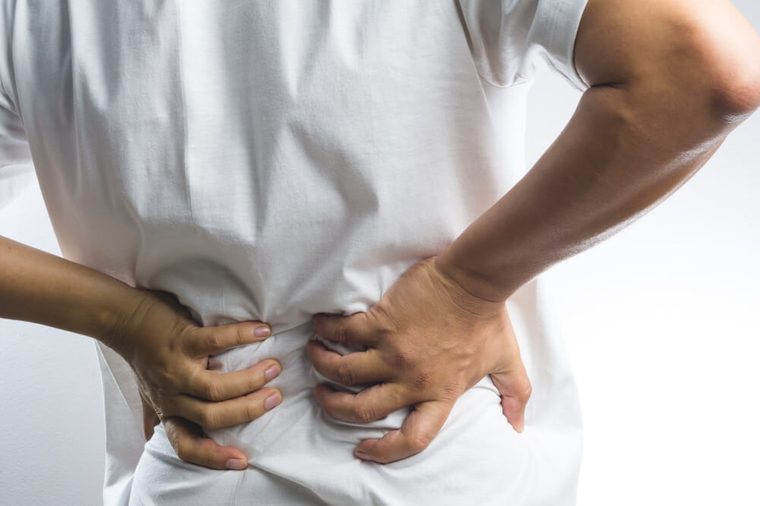
Don’t expect the classic symptoms
The most common signs of heart attack include chest discomfort (which may feel like pressure, tightness, pain, or sensations of heartburn); discomfort in the lower jaw, neck, shoulders, arms, abdomen, or upper back; and shortness of breath, according to the American Academy of Family Physicians (AAFP). “But the problem is, people don’t always have the same symptoms,” says John S. Cullen, MD, a practicing family physician in Valdez, Alaska, and president elect of the AAFP. He points out that two particular groups who may experience different heart attack warning signs include diabetics (who may notice symptoms like sweating) and women. (Here are more sneaky heart attack symptoms women tend to ignore.)
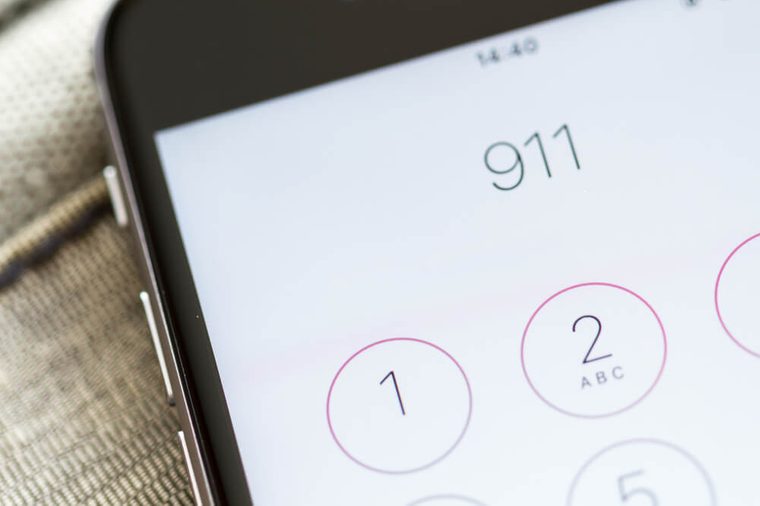
Don’t stall—or Google: Just dial
Even if you’re unsure whether you or a loved one is having a heart attack, health-care experts say the response should be: Call 9-1-1. “Many people will spend 10 minutes looking up their symptoms on the Internet,” says Dr. Cullen. “But the very first thing to do is call 9-1-1.” Martha Gulati, MD, chief of cardiology at University of Arizona, and editor-in-chief of cardiosmart.org, the patient arm of the American College of Cardiology, says, “Don’t worry if you’re wrong. EMS can start treatment when they show up.” Every minute you delay, your heart tissue is dying off, so you don’t want to fool around, she warns. EMS responders couldn’t agree more: “If you’re having chest pain or symptoms that concern you, never hesitate to call,” says Justin Tindel, a central Florida paramedic who has been working in 9-1-1 ambulance and emergency department settings for the last seven years. “We’d rather be woken up in the middle of the night than find out we could’ve helped somebody but didn’t know you needed us. This is what we’re here for!”
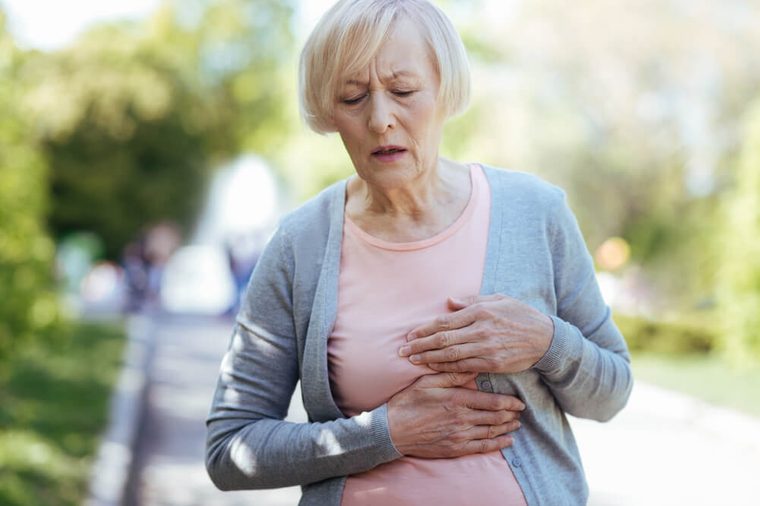
Women have to be wary
Women especially tend to wait too long to call, says Dr. Gulati. Aside from classic heart attack symptoms, women may also experience sudden dizziness, cold sweats, unusual tiredness, nausea, and heartburn-like sensations, according to cardiosmart.org. Discover more women’s heart attack symptoms.
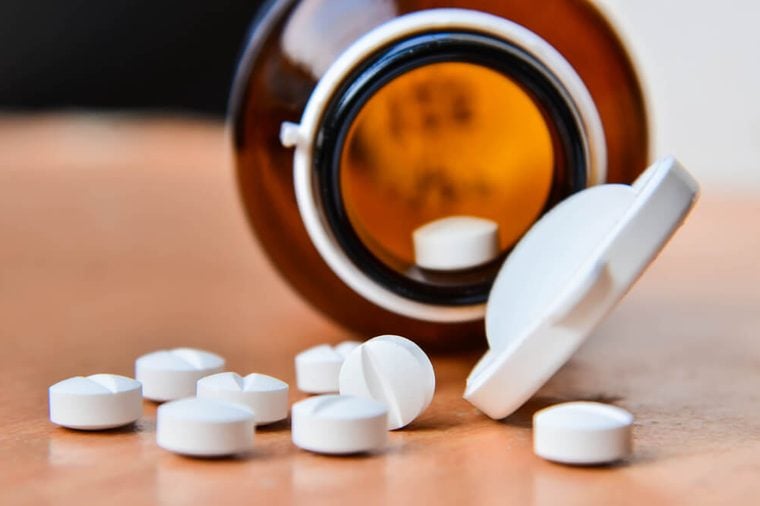
Chew an aspirin
Another point on which experts agree is that taking an aspirin could make a difference. “As long as you’re not allergic to it, aspirin is really useful,” says Dr. Cullen. “If someone comes into the ER and we suspect they’re having a heart attack, the first thing we do is give them an aspirin.” Tindel agrees: “Aspirin is a platelet inhibitor and one of the first medications your paramedics will want you to have,” he says. The clotting process around a ruptured artery can starve the heart of oxygen; asprin slows the clotting process, which buys you time. According to the Harvard Health Letter, chewing the aspirin allows it to work much faster—more than twice as fast as swallowing the pill.

Don’t drive yourself to the ER
If you think you’re having a heart attack, do not get in your car and drive to the ER, urges Dr. Cullen. “We actually had someone who died right outside the hospital,” he remembers. Dr. Gulati says she’s known patients who passed out on their way to the hospital. In addition, most ambulances have a lot of equipment to take care of heart attacks right at the scene, so if you call 9-1-1, treatment can begin almost immediately.
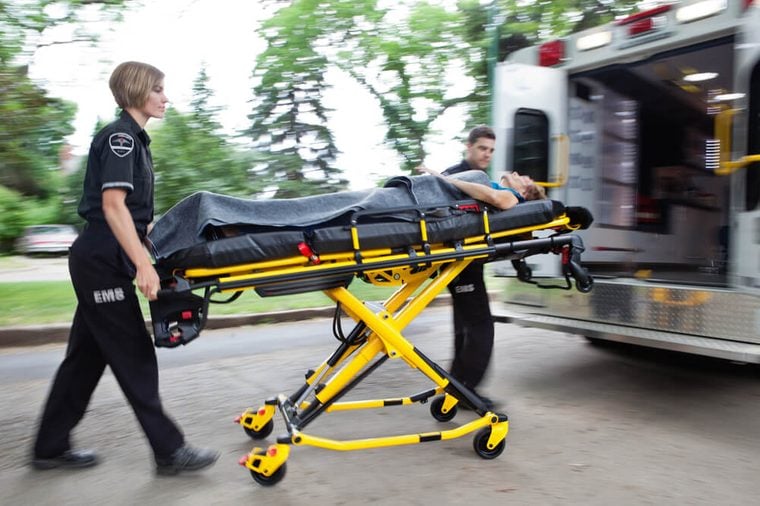
Don’t wait for the ambulance upstairs
In order to help emergency responders help you, being on the ground floor of your home is better than being upstairs, says Dr. Cullen. But he’s quick to add that people should only move downstairs if it’s easy for them and especially if they have help. Check out 50 more secrets from emergency room staff.
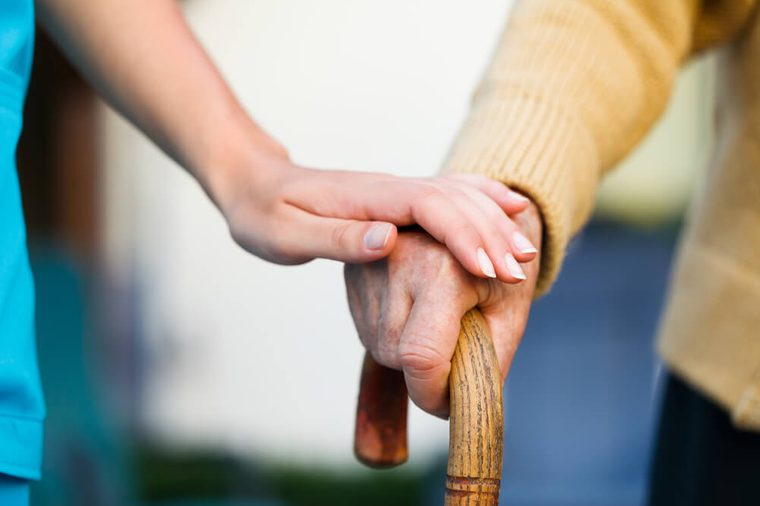
Get someone to clear a path to you
If you’re able, make sure your door is unlocked, and wait in a comfortable, accessible spot. “Find a place to sit down where we can get to you and have some room for a stretcher,” says Tindel. “Most of the time my cardiac patients sit on their sofas or a chair in their living room.”

Try to relax
“The most important thing you can do is remain calm,” says Tindel. And keeping your breathing under control is essential. “Hyperventilating increases the heart’s demand for oxygen,” he explains, “and if part of your cardiac muscle isn’t getting the oxygen it needs tissue damage will occur faster if demand is higher.” So find a place to sit down, and take slow deep breaths, Tindel advises.
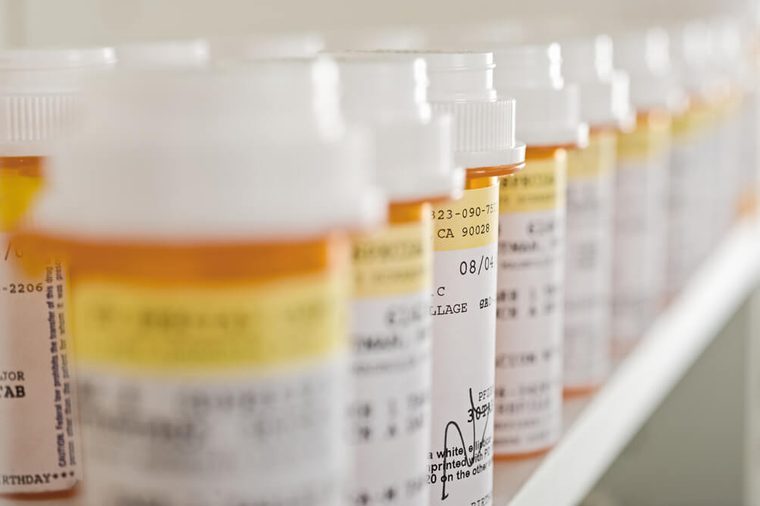
Bring any pills you’re taking with you—including herbal remedies
Having a clear, up-to-date list of your medications and their dosages is helpful for any emergency, not just a heart attack, says Tindel. “We’re familiar with most commonly prescribed medications and can understand much of your medical history by just seeing what drugs you take,” he explains. “Having a concise medication list in your wallet or purse saves time, and if you’re unconscious, it provides us with invaluable information.” If you don’t have a list prepared, just scoop your bottles into a bag to take in the ambulance. “I love it when people bring in their medications,” says Dr. Cullen, specifying that you should include any herbal supplements, because some of them have an impact on the heart. “We could also weed out the ones you don’t need anymore and get rid of them,” he adds. Learn about the dangers of taking too many medications.
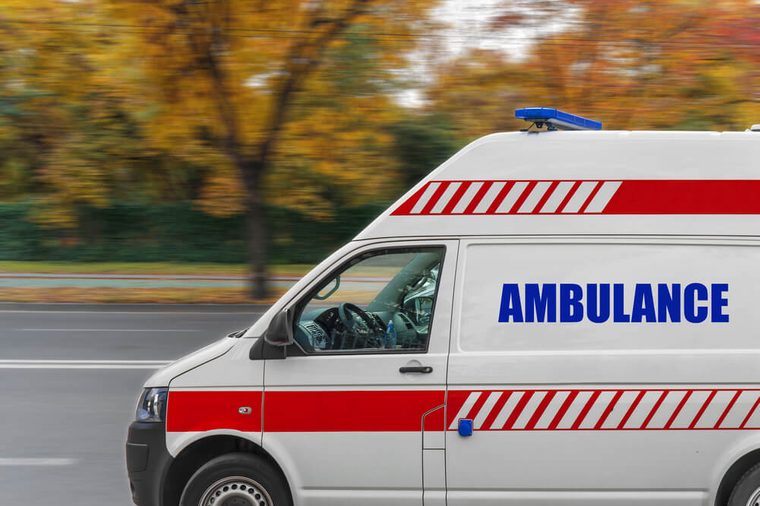
You may not go to the closest ER
Medical facilities differ in their ability to treat heart conditions, says Tindel. If a cardiac event is suspected, the standalone ER down the street won’t be able to handle your problem. “Your paramedics may need to bypass the closest emergency department for a hospital that has cardiac surgeons and specialized cardiac wards,” he says. “Our job is to get you to definitive care, the place that will help you the most and resolve your emergency condition.”
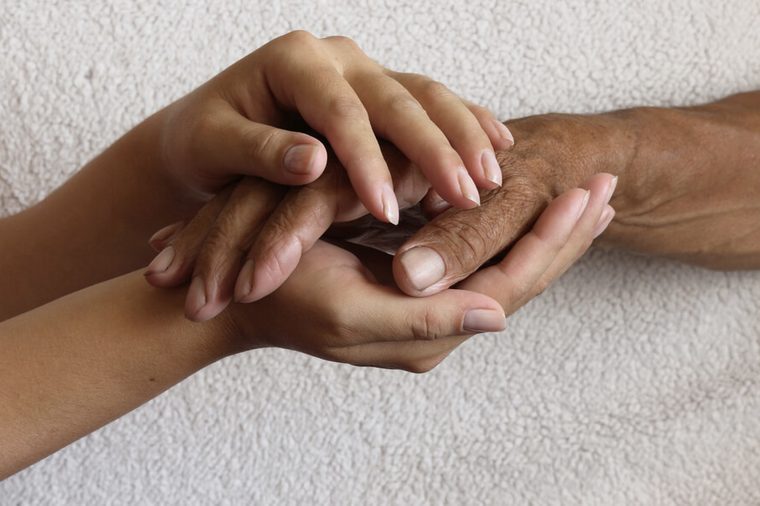
If you see something, do something
If you’re with someone who’s having a heart attack, and you think they’ve stopped breathing, start CPR so you can save a life, says Dr. Gulati. If the person is conscious, in addition to calling 9-1-1, you could have them sit down and remain calm, loosen any tight clothing, and if they have been prescribed medication for chest pain, like nitroglycerin, help them take it; give them an aspirin to chew if one is handy. And keep these additional, life-savings steps in mind if you see someone having a heart attack.